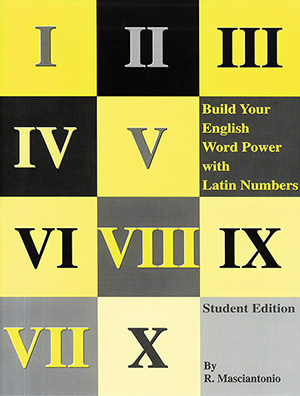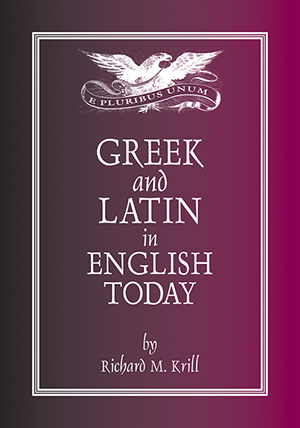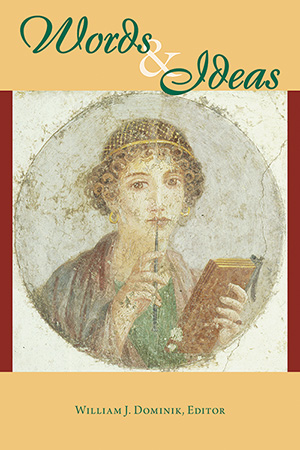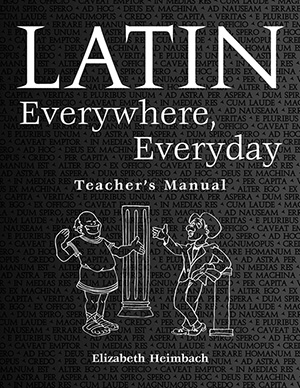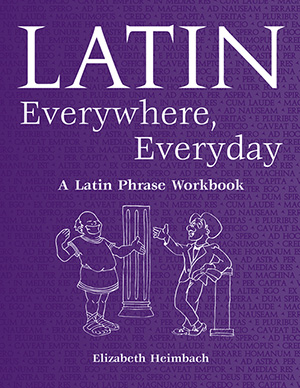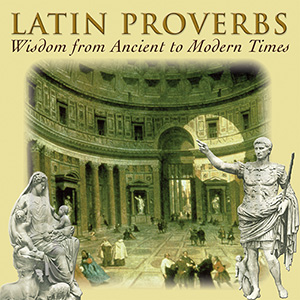This Answer Key contains answers to all the Exercises, Word Study, and For Consideration questions in the popular etymology in context textbook, Words & Ideas.
The Answer Key is intended to assist teachers and to augment students' understanding by suggesting a variety of possible answers. Perfect for teachers engaged in long-distance or web-based learning, and for those who are schooling students at home.
Special Features
- Answers to all questions in the Words & Ideas textbook
- Exercises
- Word Study
- For Consideration - Cross-references to pages in the student textbook
- Easy-to-follow format
You can be the first one to write a review.

Words and Ideas Answer Key
Saturday July 14, 2007
In 2002, William J. Dominik wrote a book on word derivations called Words and Ideas. It was suitable for a variety of users, from autodidacts to teachers. The book contains bibliographies, exercises, websites, and invaluable "Word for Word" cartoon strips. For more on this 281-page gem, see my review of Words and Ideas.
Dominik has recently come out with a companion answer key to Words and Ideas that was printed by Bolchazy-Carducci in 2007. Again, this is a great resource for the autodidact. Although the answers to the material are in the original, you need to spend time looking for them, and sometimes, even if the material is there, it is hard to grasp the essentials, so it can be useful to have the answers spelled out. The answer key doesn't force you to refer back and forth from one book to the other, but should you want to, the page numbers for the original exercises are included in the key. Instead, when there are matching questions, the whole question is repeated. Essay answers are thorough. Short identifications present model answers. Exercises that involve completing tables show the entire, completed table in the same format.
Although there is meatier material in the areas on philosophy and psychology, I will include a straightforward sample Q&A on word derivations based on Words and Ideas Chapter 8.
Q: "dependency"
A: "The base of dependency is pend-, which means "hang," and is combined with the prefix de-, which means "down" and "away from." The word is derived from Latin dependere, which means "to hang from," and means something that is subordinate and depends (literally, "hangs") on something else."
N. S. Gill
About.com
http://ancienthistory.about.com/b/a/258252.htm
by: N. Gill,– about.com
Words and Ideas Answer Key
Saturday July 14, 2007
In 2002, William J. Dominik wrote a book on word derivations called Words and Ideas. It was suitable for a variety of users, from autodidacts to teachers. The book contains bibliographies, exercises, websites, and invaluable "Word for Word" cartoon strips. For more on this 281-page gem, see my review of Words and Ideas.
Dominik has recently come out with a companion answer key to Words and Ideas that was printed by Bolchazy-Carducci in 2007. Again, this is a great resource for the autodidact. Although the answers to the material are in the original, you need to spend time looking for them, and sometimes, even if the material is there, it is hard to grasp the essentials, so it can be useful to have the answers spelled out. The answer key doesn't force you to refer back and forth from one book to the other, but should you want to, the page numbers for the original exercises are included in the key. Instead, when there are matching questions, the whole question is repeated. Essay answers are thorough. Short identifications present model answers. Exercises that involve completing tables show the entire, completed table in the same format.
Although there is meatier material in the areas on philosophy and psychology, I will include a straightforward sample Q&A on word derivations based on Words and Ideas Chapter 8.
Q: "dependency"
A: "The base of dependency is pend-, which means "hang," and is combined with the prefix de-, which means "down" and "away from." The word is derived from Latin dependere, which means "to hang from," and means something that is subordinate and depends (literally, "hangs") on something else."
N. S. Gill
About.com
http://ancienthistory.about.com/b/a/258252.htm
by: N. Gill–
Latin Everywhere, Everyday: A Latin Phrase Workbook Teacher's Manual with audio
Author: Elizabeth Heimbach
Readings and Performance: James W. Chochola
$32.00


